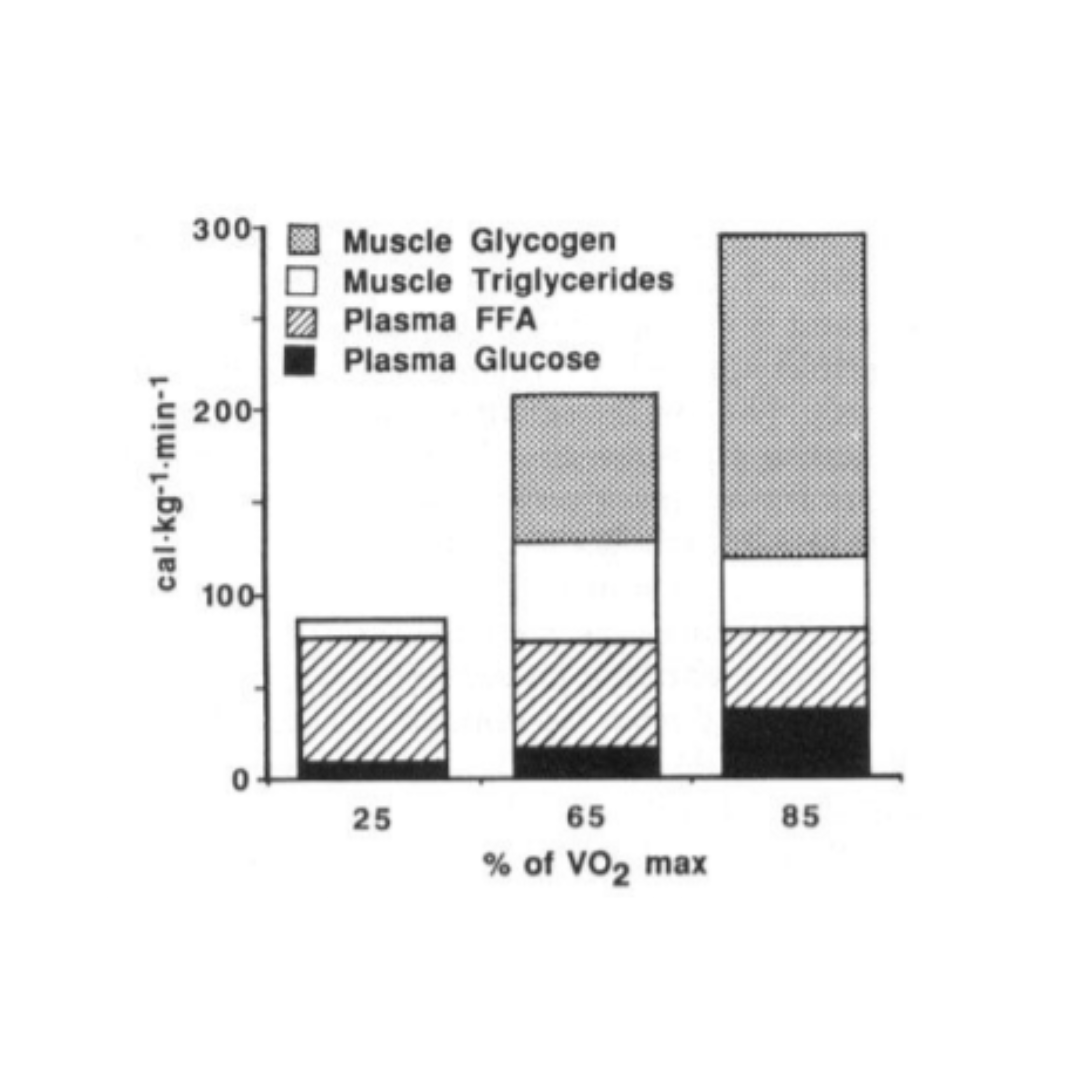Do I need carbohydrates when I train at a low heart rate?
The short answer is, yes, you do need carbohydrates, even when you are training at a low heart rate.
Carbohydrates are the preferred fuel source for our muscles. We can ingest carbohydrates for quick energy & use glycogen <carbohydrate stores> to fuel our runs. Of note, our bodies can turn glycogen into fuel faster than turning fat stores into fuel.
We have lots of research to show that during an aerobic activity <like running> our bodies are burning a combination of fat & carbohydrates. At a lower heart rate, our bodies utilize less carbohydrates than at a high heart rate. But even at a lower heart rate <around 65% VO2 max>, our bodies will use about 50% fat and 50% carbohydrates. (See the graph below)
As mileage and duration of an endurance activity increase, we know that our carbohydrate needs also increase. This means fueling with carbs on a daily basis, pre-run, intra-run and post run. Any endurance activity requires carbohydrates to perform our best.
So, while we use less carbohydrates at a lower HR, we are still using a decent amount of carbs as fuel. For an easy, low HR run over 1 hour, maybe we can stretch our fuel a little bit more <think taking a gel every 30-40 min instead of every 25-30 min>, but when you are in a longer endurance feat and want to feel your best, it is still recommended to fuel early and often so we don’t hit the wall.
What we know about the positive effects that carbohydrates have on running:
Carbohydrates are the preferred fuel source for our muscles.
Pre-run carbohydrate intake improves endurance performance.
Carbohydrate availability is essential for muscle contractile function.
Carbohydrate consumption post-exercise aids in muscle recovery.
Carbohydrate storage in our muscles <glycogen> improves endurance performance.
MORE MILES = MORE CARBS
Takeaway...
While it is possible to run without consuming many carbs, we have listed many reasons why it is beneficial to support your training with adequate carbohydrates, even if you are training at a low HR. The total amount of daily and intra-run carbs might be a little lower than someone working at a higher intensity, but it will depend. It is very dependent on your training volume, duration, body size, etc. If you need help figuring it out, reach out for a consult.
PMID: 33198277, 8214047
Disclaimer: The content in our blog articles provides generalized nutrition guidance. The information above may not apply to everyone. For personalized recommendations, please reach out to your sports dietitian. Individuals who may chose to implement nutrition changes agree that Featherstone Nutrition is not responsible for any injury, damage or loss related to those changes or participation.


